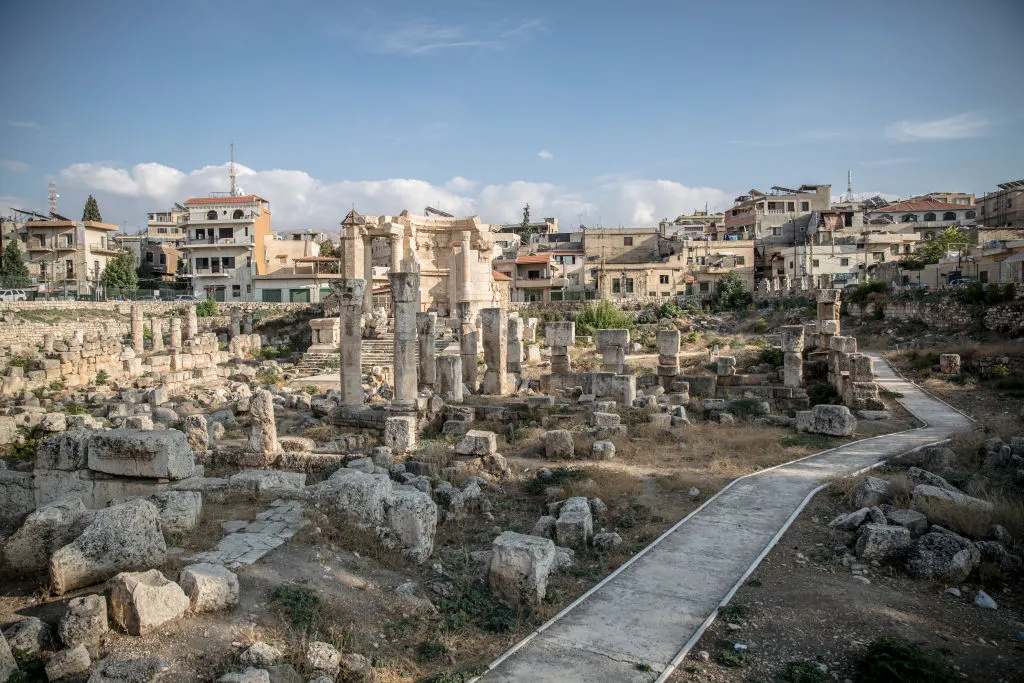
UNESCO has placed 34 historic sites in Lebanon on its enhanced protection list, less than a month after an Israeli air strike landed perilously close to the Roman ruins of Baalbek.
The decision was reached in an emergency session of the committee for the Protection of Cultural Property in the Event of Armed Conflict, which took place in Paris on November 18, per a press release from the organization.
“Unesco has a deep and long-standing cooperation with Lebanon. We will spare no effort to provide all the expertise and assistance needed to protect its exceptional heritage”, Audrey Azoulay, the director-general of UNESCO, said in a statement.
In recent weeks, Lebanese cultural authorities have called for international intervention on behalf of its historic sites, in particular the World Heritage Sites of Baalbek and Tyre, two of six Lebanese sites inscribed on UNESCO’s World Heritage list. Other “cultural properties” promised enhanced protections by UNESCO include the Nicolas Ibrahim Sursock Museum in Beirut, which has closed due to the conflict, the National Museum of Beirut, and the Majdel Anjar Temple, a major Roman temple dating to 41 CE and located in West Bekaa.
UNESCO said in a statement that it has been in close contact with local and national Lebanese cultural authorities since the escalation of Israel’s military campaign against Hezbollah in September. “The organization has offered its support in identifying emergency measures, inventorying museum collections, and moving works that can be moved to safe locations elsewhere in Lebanon.”
On Saturday, Lebanon’s state news agency reported that Israel had again struck the ancient city of Tyre, in the historic district home to one of the world’s best preserved Roman ruins, including a large hippodrome.
Several weeks prior, Israel began its aerial bombardment of the city of Baalbek, endangering its celebrated triad of Roman temples, as well as forcing thousands of civilians to flee from the area. Images of a large plume of smoke rising behind the towering columns of Baalbek’s Jupiter Temple were shared widely on social media and by foreign press. The 11,000-year-old triad of temples devoted to the Roman deities of Jupiter, Venus, and Mercury has been listed as a UNESCO World Heritage Site since 1984.
Baalbek’s other archeological treasures have not been spared from the fighting. Joanne Bajjaly, archaeologist and leader of the Lebanese NGO Biladi, confirmed earlier this month to the Art Newspaper that one of the stones comprising the “Qube” (or “dome”) of the 1243 CE Qubbat Doris, a Muslim shrine, had broken off, though the structure itself was still standing as of November 7. Two adjoining city walls in the historic old town, one of which dates to the French Mandate, and the other built in the Ottoman era, suffered severe damage from Israeli air strikes.
According to UNESCO, the newly listed 34 cultural properties are now guaranteed the highest level of protection against attack. “Non-compliance with these clauses would constitute ‘serious violations’ of the 1954 Hague Convention and would constitute potential grounds for prosecution,” the agency said.
The Israeli military said it has struck at least 1,600 purported Hezbollah centers since its campaign against the group escalated on September 27, when hundreds of pagers allegedly used by the group’s members were remotely detonated across Lebanon. According to the Lebanon’s Ministry of Health, Israeli attacks across the country have killed at least 3,102 people and injured 13,819 since October of 2023.

